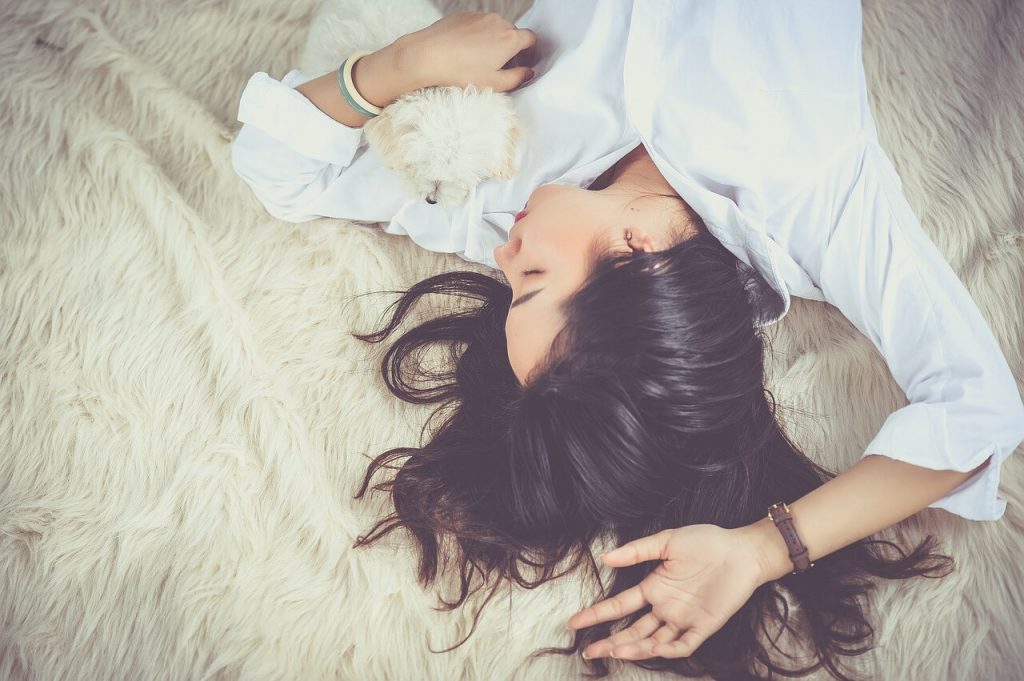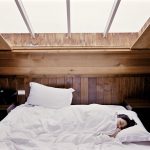Falling asleep is difficult enough for most people, but what about those who can peacefully fall asleep only to be woken a few hours later? Both issues are frustrating in their own way. However, sometimes it can be difficult to tell what exactly what is preventing you from staying asleep the whole night.
There are a plethora of ways to improve upon your sleep. A combination of these improvements should create the results you are looking for even if focusing on one does not. Let’s go over a few causes as to why you are finding yourself waking frequently throughout the night.
Improve Your Sleep Hygiene
We will specifically be looking at actions you can take immediately to improve your sleep. This mostly has to do with controlling your routine, sleep environment, and the surface you sleep on. You will see how these key factors contribute towards healthy sleep by properly regulating very important sleep hormones.
It is vital to your quality of sleep that you address these areas to prevent these sleep interruptions. Most of these tie into falling asleep as well, but the emphasis will be on ways to prevent sleep interruption.
Sleeping in New and Foreign Environments Can Reduce Sleep Quality
Controlling the environment you sleep in is perhaps the most important aspect of staying asleep throughout the night. This is because it is often your senses that alert you while sleeping, which inevitably leads to sleep interruption. Consider this: when you are sleeping in a new environment your brain does not allow itself to fully focus on regenerative processes.
This is exactly why people usually don’t sleep well in an environment they’re not used to; the brain is still practicing certain self-preservation measures to ensure your safety. Now this is not exactly what is happening for most individuals who cannot stay asleep in their own bed, but it drives home the point that your brain is still somewhat alert during sleep.
This means you must work hard to make sure that nothing is alerting your brain during the night. For most people this means taking a few specific steps to rid yourself of some common sleep interruptions.
Reduce Light In Your Bedroom
This is the most obvious thing, as it is what many people feel ultimately wakes them in the early morning. There certainly are people out there who can sleep through noise, but you would be hard pressed to find somebody that can tolerate bright lights flashing through their windows and into their face. Using heavy curtains should defuse the amount of light that can can enter through, but there is also the issue of light present in the room.
Even the seemingly tiny amount of light emitted from your alarm clock could be disturbing you. It makes sense to keep your clock so close; we all want to be aware of the time. This is especially so with the busy nature of our lives, but pointing any device that emits light towards you while sleeping is a poor idea.
Eliminate Noises
Handling noise sort of implies that you’re trying to reduce noise that is bothering you. However, sometimes the problem is that whatever noise there is lacks consistency and has peaks in volume. Consider using earplugs if your issue is noise outside your environment, as you will not be disturbed by noise that way.
Creating a consistent noise level is easier than you would think too; white noise machines are fairly inexpensive and work great for this issue. White noise machines, depending on price range, often have a variety of settings to create different sounds. This should eliminate much question about whether purchasing a white noise machine is a good idea for you.
Create a Sleep Routine
What you do before heading to bed is equally as important as the environment you sleep in. There are a whole lot of ways you can improve your sleep hygiene, so we will go over a handful of the more significant points. This section has more to do with positive lifestyle changes than addressing how much light or sound enters your bedroom. You will see that almost everything you do from the moment you wake is significant enough to have either a positive or adverse effect on your sleep.
Exercise
It is understandable why this is such a neglected area for most people; it is difficult to spend that time on self improvement instead of something more fun if you hardly have time for yourself. The truth is that finding time for just thirty minutes of daily exercise would be enough to see improvements in your ability to fall and stay asleep. The importance of exercise does not lie in the intensity as much as it does the frequency and consistency. Regular exercise promotes greater levels of deep sleep, which should help you sleep peacefully through the night.
Blue Light: Get Off Your Phone, Turn Off Your TV
One of the most overlooked aspects of sleep hygiene is avoiding blue light as you approach the time you would usually go to sleep. Blue light messes with our circadian rhythm, which is the body’s way of regulating a day long cycle.
The negative effects of blue light in regards to falling and staying asleep are well documented; a 2015 study on the effects of blue light on the circadian system found that those who use blue light emitting devices before bed have more trouble falling asleep, producing melatonin (an important sleep hormone), and had a delayed circadian rhythm. A delayed circadian rhythm means that their biological clock ran longer than the typical 24 hour cycle, which ultimately results in going to bed later than intended.
The use of a blue light emitting device will stop you from falling asleep when you want to in most instances, so creating a routine where you avoid them near bedtime is important. Specifically you should stop using devices like your phone, tablet, e-reader, laptop, desktop computer, and really anything else that’s LED lit. Certain phones have the option of dimming blue light, so if you absolutely need the use of a phone near bedtime there are options available. There are applications available on Windows and macOS that gradually reduce blue light as your bedtime approaches too.
Improve Your Diet
These are a package deal really since they all relate to consumption. As far as diet, you should avoid eating significant amounts of food directly before going to bed. Eating before bed is not necessarily a bad thing in itself, but most people are well aware of how uncomfortable it can be to eat a big meal before heading straight to bed.
Avoid Caffeine
Caffeine should be avoided in excessive amounts or really at
Avoid Alcohol
Alcohol actually does help people fall asleep typically, but its use usually results in later sleep interruption. Despite what we are often told, alcohol does more to disrupt sleep than it does to help you. Certain substances can really mess with your ability to sleep. Getting more sleep could help a lot with caffeine intake as your energy levels will increase with sleep and you may not feel you need it anymore. The same can be said for better sleep hygiene and the use of alcohol.
Improve Your Mattress, Pillow, or Blanket
We have other resources at Proper Ergonomics on how to best address your mattress, pillow, and blanket in a variety of ways. There are a ton of mattress options available; choosing one will come down to finding what suits your needs. There are head-positioning pillows available if you have trouble with certain conditions like obstructive sleep apnea. If addressing either of these fails to help, a weighted blanket could ease your difficulty falling and staying asleep. In the end, it will most likely take addressing multiple of these areas to see a real improvement.



